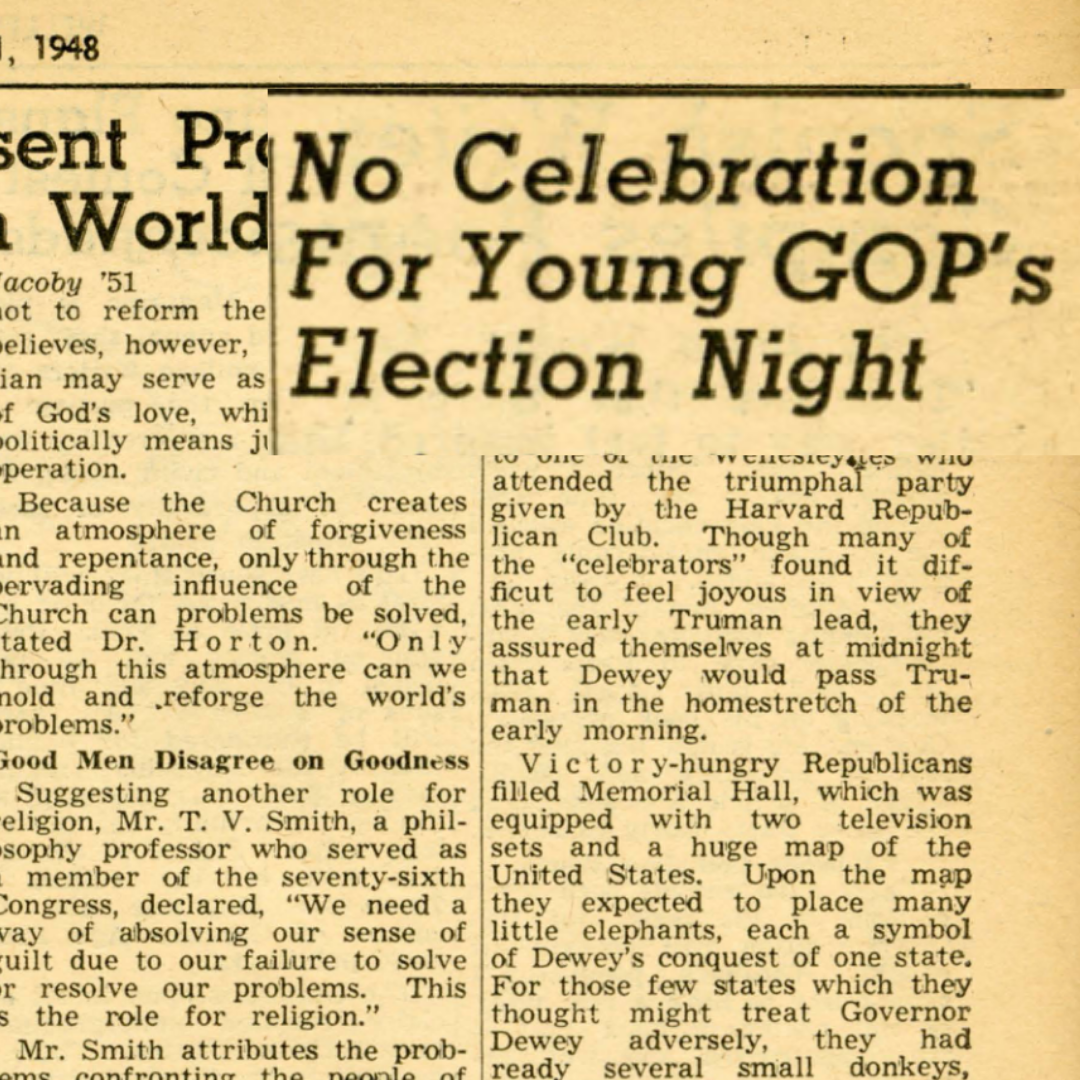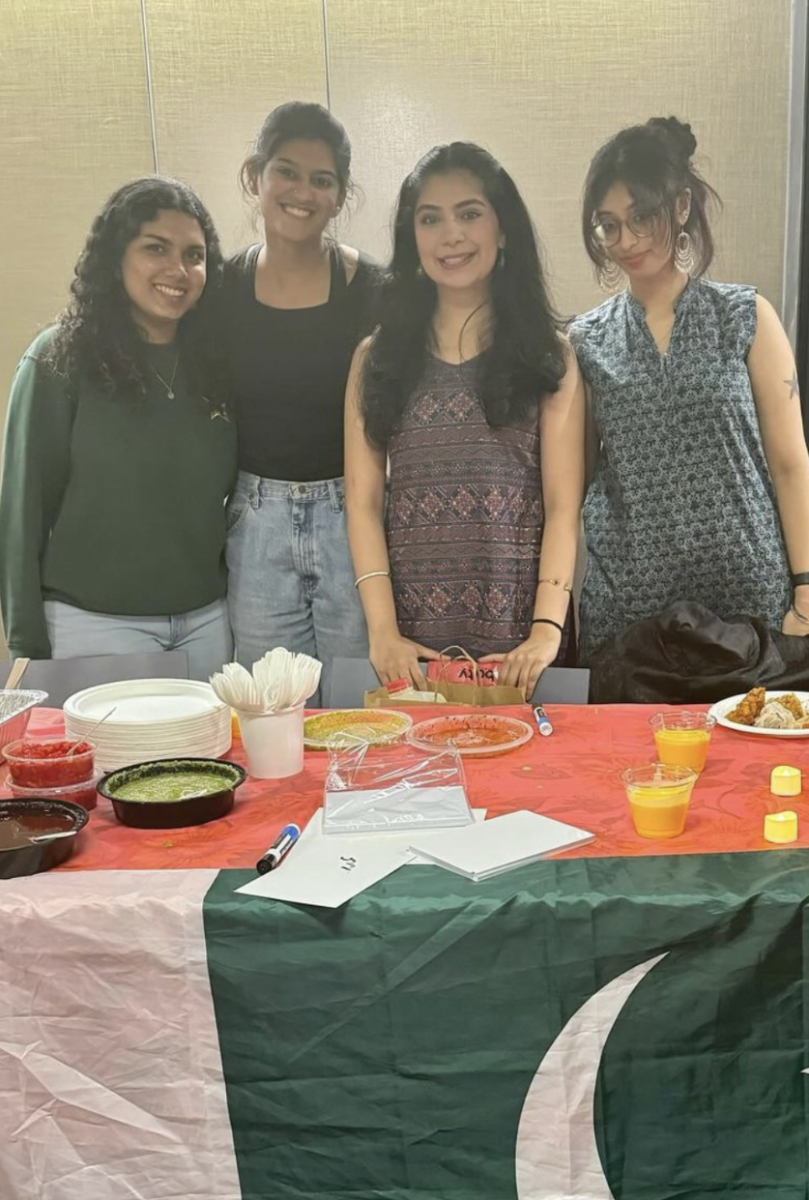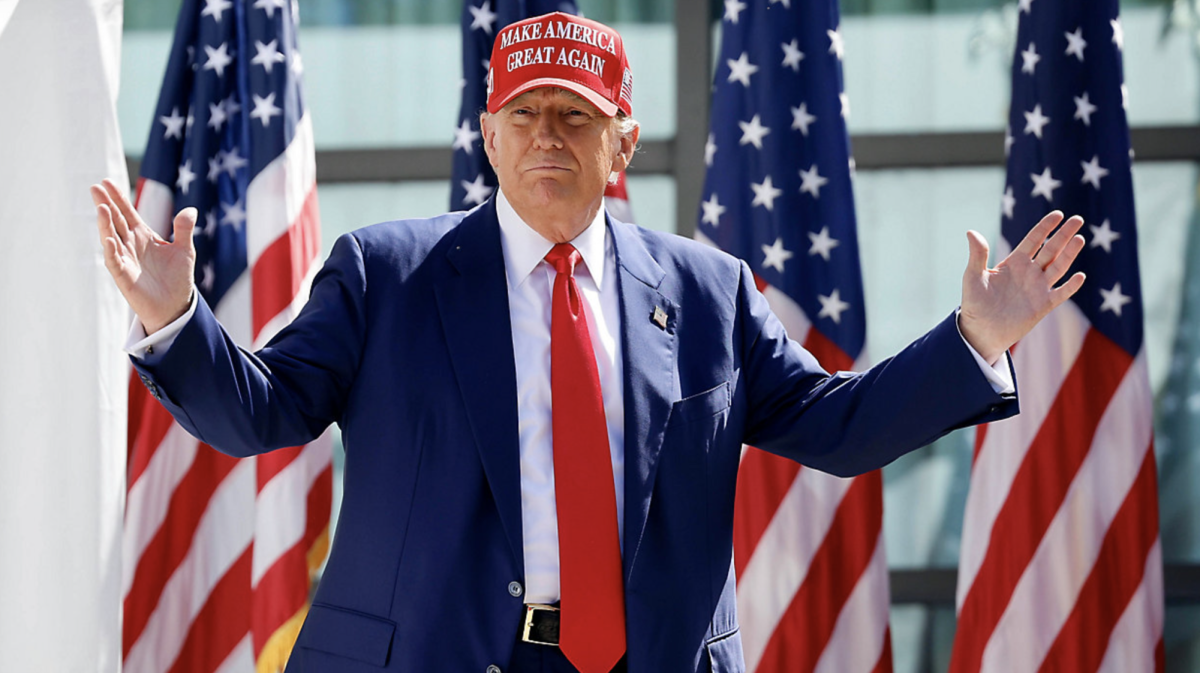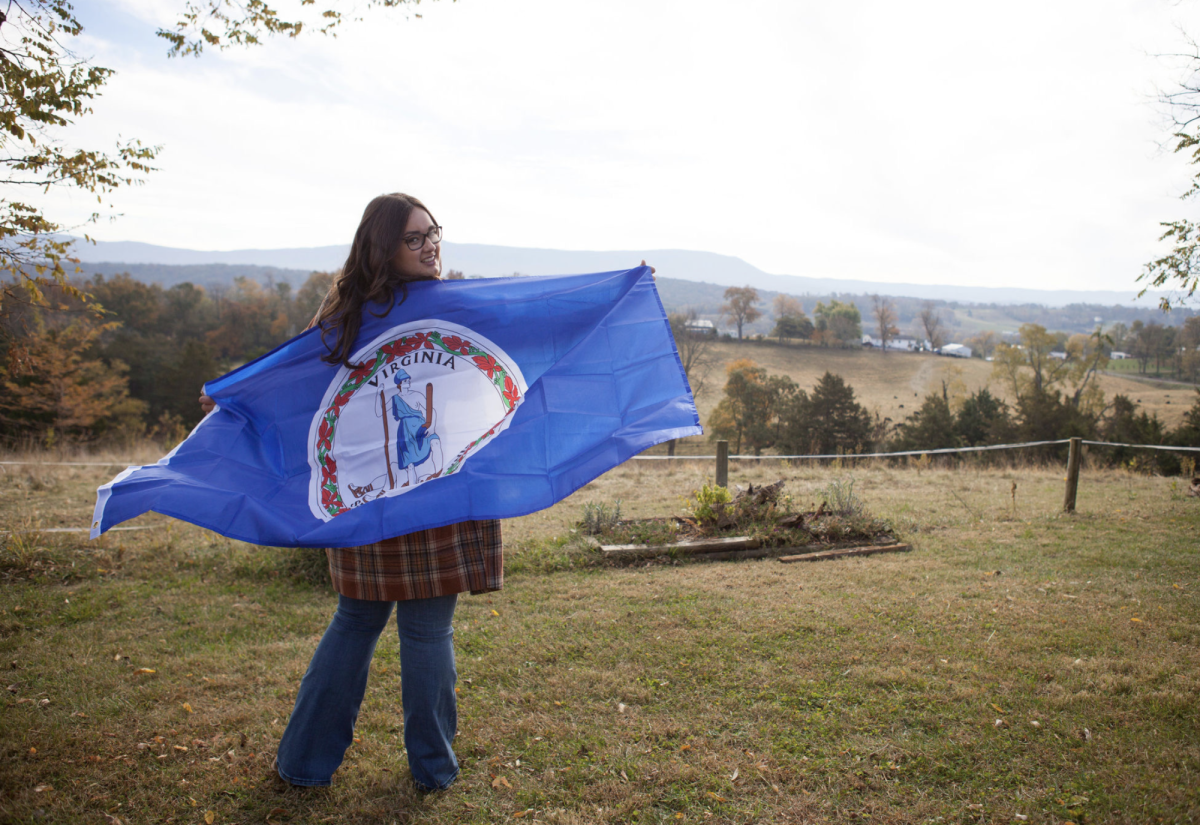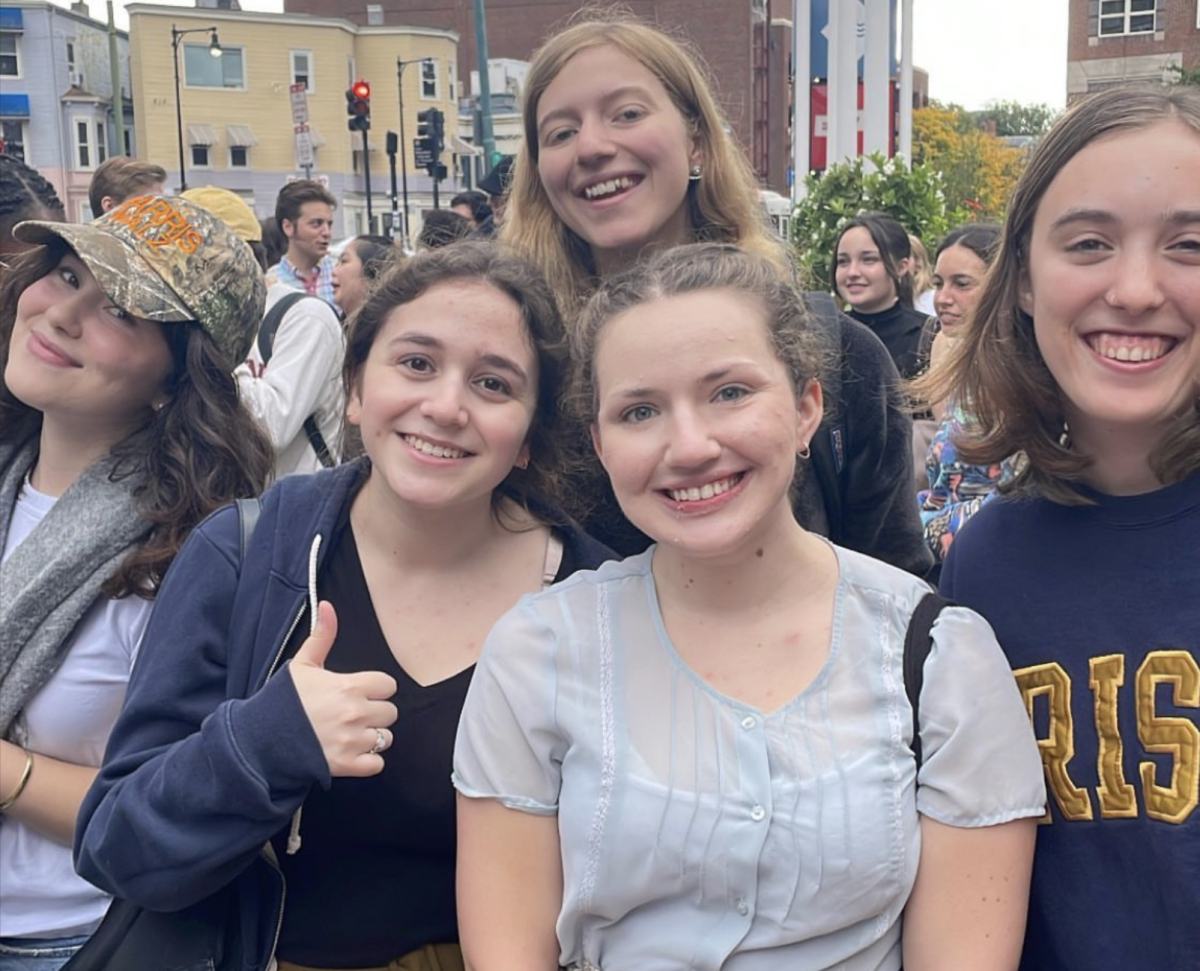Just under a week away from the 2024 presidential election, we turn to The Wellesley News’ very own archives to look back on how the Wellesley community felt on the eve of elections past.
In an article from Nov. 11, 1948’s edition, Marily Jacoby ’51 reported on election night events in the year Republican candidate Thomas E. Dewey lost in a shocking upset to Democrat candidate Harry S. Truman. Jacoby’s article highlights a long tradition of political engagement of Wellesley students.
While Wellesley does not currently have a Republican chapter, that wasn’t the case back in 1948. Jacoby reported that “victory-hungry Republicans” filled Harvard’s Memorial Hall where it had two television sets and a huge map of the United States, for a joint event with Harvard’s Republican Club.
“Upon the map they expected to place many little elephants, each a symbol of Dewey’s conquest of one state. For those few states which they thought might treat Governor Dewey adversely, they had ready several small donkeys, Confederate flags, and blue stars. In retrospect, we wonder if the supply of donkeys ran out!”
“Around midnight when Truman’s victory became more apparent, several Democrats entered the hall, calling for an imminent change in celebrators. Wellesley Republicans returned to their dorms in the hope of hearing favorable radio reports.
“Joyce Norton ’51, who wandered into a room from which the voice of a radio commentator was issuing, summarized their attitude. “I don’t understand,” she said. ‘What’s happening?’”
In the lead-up to the 1968 election, published in that year’s Halloween edition, Joane Curtis ’72 and Dorothy Devine ’69 covered a Boston Garden rally “Eleven Candidates for Peace” which had over 10,000 attendees. That year’s campaign was embroiled in the Civil Rights Movement, as well as the upswing in anti-Vietnam War protests, both key topics referenced at the event.
“The first speaker, Richard Goodwin …reiterated the rhetoric … that the ‘older generation is cutting off the path to power, and that they are more anxious to preserve rather than serve their convictions.’
Oscar-winning actress Shirley MacLaine was also at the rally, advocating for a “revolutionary government out of revolutionary ideas.”
“There can no longer be one law for the rich, one law for the poor, one for the white, one law for the black… It’s time to tell it like it is. Politics alone won’t solve the problem,” she said.
Curtis and Devine observed that the crowd was largely quiet throughout the speeches and gave generously to the donation buckets for the “11 for Peace” campaign.
“More powerful than anything McCarthy could say, however, was the emotion of those who listened,” they wrote.
Another election year that feels particularly significant to consider today is that of 2016, which had a special resonance for the Wellesley community when Hillary Clinton ’69 ran for the presidency. We reported on the increase in political engagement, particularly organizing following Donald Trump’s win over Clinton.
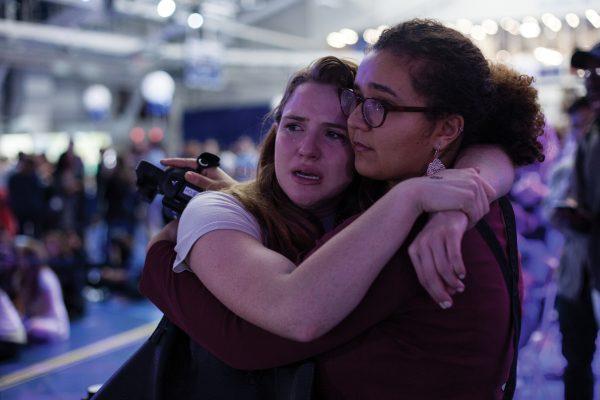
Genae Matthew’s article, published on Dec. 2, 2016, covered a teach-in following the election, an important piece of not only how the community engages with presidential elections, but also in how we think and have thought about them.
“‘How did we get here?’ Professor Brenna Greer asked the crowd. She began by arguing that “we’ve done a lot of forgetting. We either don’t know or we choose to forget our history, particularly in regard to race and racism.”
“…She presented a number of factors which contributed to the rise of Donald Trump, among them the rise in consumerism and white nationalism inspired by the Obama presidency.
Matthew reported that Greer stressed how important identity politics and political correctness are in language, and the appropriation of political correctness was key for Trump supporters to legitimize their inflammatory rhetoric.
“‘No one who has come of age in the United States is free of racial prejudice towards people of color,’ Greer argued.
A week after Trump was elected as president, Alexandria Otero reported on the Wellesley community’s response to the election. Karen Su ’19, Vice President and Women Colleges representative for Wellesley Students for Hillary, said she was hopeful that students could be more “activated” after the election.
“‘They didn’t realize their stake in the election. Now they do, and they are activating that. They are angry, but angry in the sense that they are willing to be productive with that anger,’ Su said.
Contact the editor responsible for this story: Valida Pau

